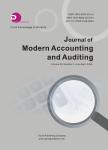Simulation Models for Evaluation and Selection of Depreciation Policy for Agricultural Companies in the Republic of Bulgaria
Simulation Models for Evaluation and Selection of Depreciation Policy for Agricultural Companies in the Republic of Bulgaria作者机构:"Angel Kanchev" University of Ruse Ruse Republic of Bulgaria
出 版 物:《Journal of Modern Accounting and Auditing》 (现代会计与审计(英文版))
年 卷 期:2013年第9卷第10期
页 面:1322-1333页
学科分类:12[管理学] 0202[经济学-应用经济学] 02[经济学] 1203[管理学-农林经济管理] 020205[经济学-产业经济学] 08[工学] 080203[工学-机械设计及理论] 0802[工学-机械工程]
主 题:折旧方法 仿真模型 农业企业 保加利亚 共和国 通货膨胀率 评估 盈利能力
摘 要:In the present paper, the results from research on the influence of criteria (factors) such as depreciation method, materiality threshold, and inflation rate on the selection of depreciation policy are shown. The research has been carried out with the help of specifically devised simulation models. The simulation is realized in accounting for the unevenness of money in time and the profitability of the company, the tax rates for corporate tax, and the inflation rate. The models have been devised after analyzing methodology issues, related to depreciation policy and investigating current practices in its implementation in specific agricultural companies in present-day Bulgaria. It has been determined that there is a clear-cut relation between the profitability of the companies and the materiality threshold and depreciation method chosen. The main conclusion is that when the companies develop their depreciation policy, at ceteris paribus they should select higher materiality thresholds and diminishing balance depreciation methods due to the inequality of money in time, the acceleration of obsolescence, and the inflation processes.



